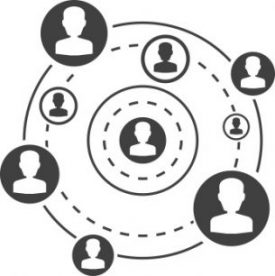
BIG DATA, small data
The phrase “data is the new oil” was coined by Clive Humby, the genius behind Tesco’s loyalty card almost a decade ago. It is a great metaphor – just like oil, in its rawest form, data is almost useless. But when oil is refined it can be turned into something much more valuable like gas, plastic, chemicals, etc., so too must data be broken down and analysed for it to grow in value.
Big companies mine big data with big machines in order to find correlations between the data sets and as we all know, some people have some very legitimate concerns about how tech giants are exploiting what they know about us. However, whilst a source of concern, at the same time, there are myriad ways in which all this data can (and does) improve the world.
Small data is about understanding causes. Understanding the true nature of consumers, rather than defining them by their transactions. To develop awareness from small data you need to be fully present to have a successful small data mindset – seeing things people normally wouldn’t see, drawing conclusions from those things and reacting to them. Once you’ve developed that mindset, you may well hold a clear competitive advantage.
As an example, after the arrival of the internet, the LEGO Group management assumed children would no longer have the patience to build with small LEGO bricks, so it switched to larger blocks to speed up building time, only to see sales plummet. By 2002, the company was almost bankrupt, but what went so wrong?
It was an 11-year-old German boy’s admission of pride in his worn-out sneakers that helped reframe LEGO’s mindset and turn things around. To this boy, the wear and tear from hundreds of hours of skating was proof that he was the best skater in town. This insight reshaped LEGO’s understanding to consider that perhaps “digital natives” might be willing to spend as long as it takes to achieve what they want. This piece of small data resulted in LEGO reverting to a smaller brick and ultimately becoming the largest toy manufacturer in the world.
The underlying and invaluable message from all of this is to always remember that to add economic value to your business you need to understand people’s behaviours in real time by being observant, having open communication channels and taking your customers along the journey with you. Data, and more specifically, the right use and interpretation of data, can provide the insights which are in many ways the key to achieving this outcome. If you can successfully do that and rather than treating customers like robotic transactional machines, you’ll go a long way in building a sustainable and successful business for many years to come.



